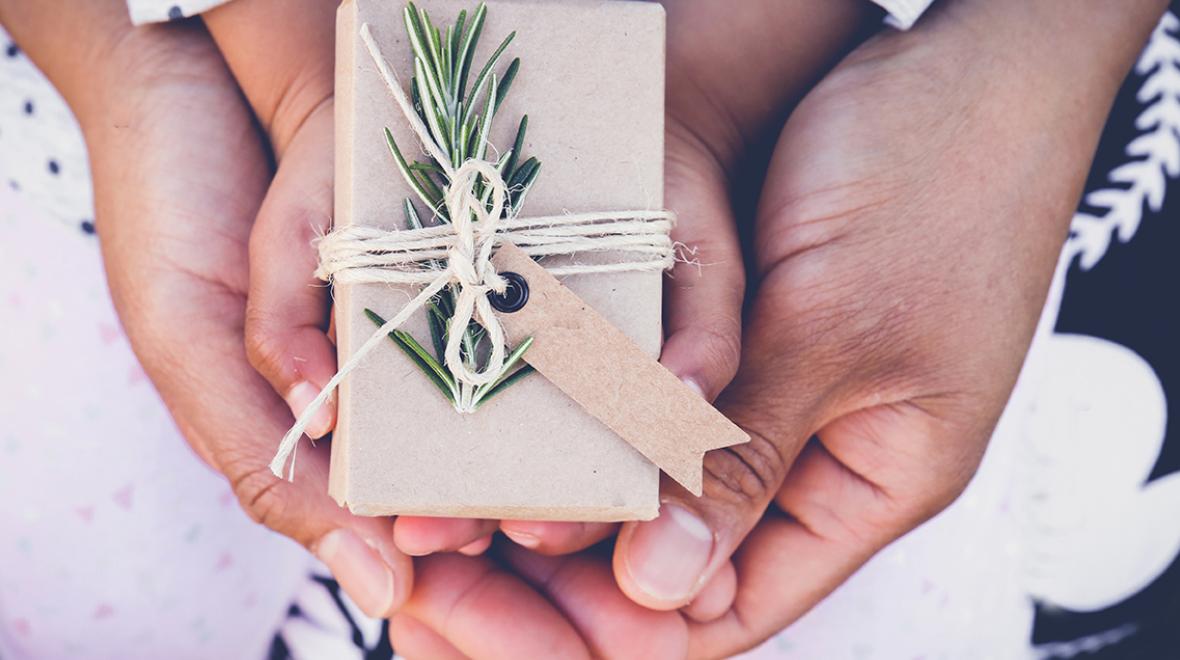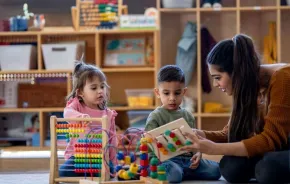
Editor's note: This article was sponsored by THIRA Health.
The holidays are a time for giving, and what child doesn’t love receiving gifts? Still, it’s likely that not all of the gifts your child opens this year will light up their faces with unabashed delight. If your children’s less than appreciative reaction to a gift has ever made you cringe, you’re not alone. To cultivate an attitude of gratitude that thrives during the holidays, experts say that parents should instill a sense of appreciation in their kids year around. ParentMap reached out to Mehri Moore, M.D., chief medical officer and founder of THIRA Health, for tips on managing kids’ expectations this holiday season.
Establish a family culture of appreciation.
Children learn from the culture that surrounds them at home and mimic it, says Moore. So, if you regularly practice habits of gratitude and demonstrate appreciation for all of the blessings you have, your children will follow suit. Emphasize the act of giving over that of receiving so that your kids discover the joy of giving gifts to others. Help your child choose thoughtful presents that will hold special meaning to the recipients.
The holidays are an exciting time for kids, and getting presents is a big part of the picture. When it comes to managing expectations about receiving gifts, it’s helpful to consider your child’s age and developmental stage, says Moore. For school-age kids, have repeated conversations about how to receive gifts with grace and thankfulness, she says. When you’re the recipient of a gift or a kind act, let your children witness your appreciation for the thought and energy that went into the offering. Expressing your thanks openly helps kids to understand the true meaning behind receiving gifts.
As a practical consideration, set your child’s expectations by stating specific boundaries or limits on how many gifts they’re going to get during the holiday, based on your family’s budget. Moore recommends that you say something like, “You’re going to get five gifts this holiday. Give me a list of the things that you really want.”
Once you receive their list, let your child know the amount of money you can realistically expend on their gifts. Then, suggests Moore, Google the cost of each present with your kids, both to help them appreciate the value of money and to prioritize what they want the most. “If there’s an expensive gaming [system] they just can’t live without, tell them, ‘Okay, it looks like this is really what you want, but because the cost of the gift is high, maybe you’re not going to get five gifts.’”
Encourage kids to give back.
Parents can help children to look beyond their own desires during the holidays by encouraging them to give back to the community, says Moore. If your finances allow, offer to add money to your older child’s gift budget if they volunteer their time to a charity, soup kitchen or park cleanup, she suggests. Even if you can’t increase their gift budget, inspiring your children to give back instills a powerful sense of gratitude. “[Older children can] create a blessing box in the neighborhood where they put things they want to give away, and then encourage people to come and pick up things that they need,” suggests Moore. This shifts the focus from themselves to the needs of others.
With younger kids, work with them to sort through their toys, making a pile to keep and another to donate to those who are less fortunate. Doing this encourages a reciprocal spirit of giving on a truly personal level during a time when kids are also receiving gifts, notes Moore.
Manage expectations of your time and energy.
Given the constant demands on their time and attention, it’s easy for parents to become overtaxed during the holidays. “It’s inevitable that everybody around the holidays feels overwhelmed — that is just the unfortunate cultural imposition that we put on ourselves, whether it’s creating a wonderful environment around Thanksgiving and spending two days of cooking and cleaning, or wrapping presents late into that night and getting everything going while both parents are working. And then there are all the other barriers we have right now because of COVID-19. Communicate to your kids that there are limits to your resources, financial and otherwise,” advises Moore.
Take some time to prepare for the holiday season beforehand, and plan to spend a couple of days after the holidays free from any obligations , says Moore. “If you can, take a paid day off from work to just rest and relax, because the end of the holidays is like the finish line of a marathon.”
Get your kids involved with helping out at a young age, so they make an effort on their own initiative to help out during the holidays. “Set the expectation for everybody in the family to chip in and help out — and not only around the holidays. If [kids] have chores on a daily basis and if they are responsible for putting a meal together once a week, you are teaching them the skills to step in and help when there’s a need,” says Moore.
|
Sponsored by: |

|











